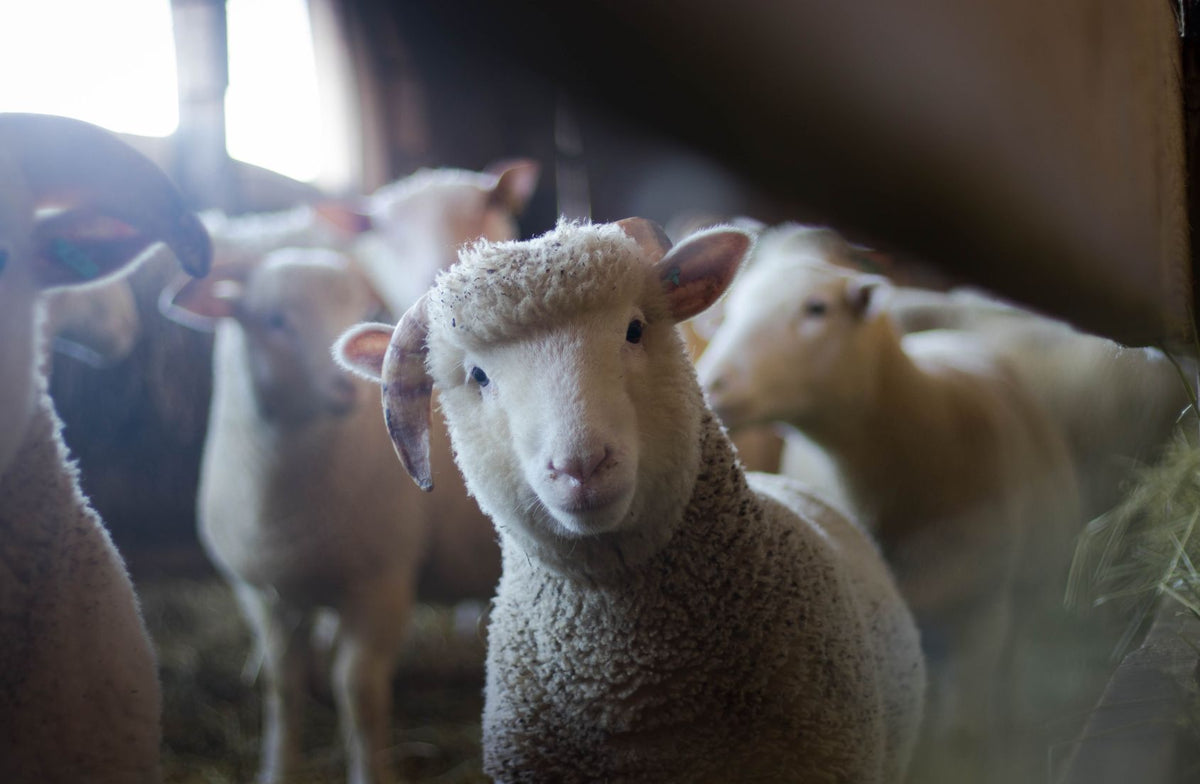
Is Wool Vegan? Can Wearing Wool Ever Be Ethical?
|
Time to read 3 min
|
Time to read 3 min
Wool is one of the most widely debated – and often misunderstood – aspects of the vegan lifestyle.
It’s clear to see why a beef burger, cow’s milk and even fur is not cruelty-free. But when it comes to wool, there is a perception that wool is harmless to sheep.
But is that true? Can wool actually be vegan?

To put it simply, wool is not vegan. By definition, vegans do not participate in any form of exploitation of animals for food, clothing, or any other purpose. This makes wool firmly not vegan.
When it comes to wool, the hard truth is the wool industry exploits sheep, and there is evidence to show this results in significant harm to the animals.
A lot of people still feel shearing a sheep’s wool is a harmless practice, as visions of sheep-shearing are often associated with the innocence of shaving a pet. However, the wool industry is far from it.
Whenever you commodify a living being, there is an inevitable difference in the perception of that being.
The business and profit often come before the being. The commodification of wool has created an industry that causes significant and ongoing pain to sheep worldwide.
If you’ve never heard of “Mulesing” you’re not alone. The term isn’t one most are familiar with – and for a reason.
Mulesing is the practice of removing large strips of a sheep’s skin from their young wool-bearing sheep. This is often done without any anesthetic or veterinary treatment.
It is apparently done so that they do not succumb to illnesses caused by flies that bury themselves in the rump skin of the animals, but the animals experience excruciating pain both during the procedure and for weeks afterward as they heal.
Lots of sheep do not survive this practice.
While wool is worn mostly in cold climates, it is not always produced in them.
In fact, notoriously hot, Australia is one of the highest exporters of wool worldwide. The unnatural overload of wool on the sheep can cause them to collapse and sometimes they do not survive the summer months.
It is also common for flies to lay their eggs in the sheep’s wrinkles. This is due to the build-up of urine and moisture in hot climates. Once hatched, sheep can be eaten alive by maggots.
The factory farms on which many of these animals live keep the animals in torturous “living” conditions.
Confined to small pens for years on end, these animals get no exercise, no sunlight, no fresh air, and often very little food. They are kept still to keep them from getting too dirty, so they can be sheared repeatedly in order to produce the “finest” wool on earth.
Many of these sheep go insane because of this, rocking back and forth repeatedly or spinning around in circles, and most die without ever having been allowed to walk outdoors.

Fortunately, many upscale companies are turning to “ethically”-raised sheep and refusing factory-farmed wool, but there is still a level of exploitation and cruelty that even “free-range” sheep encounter, just for the sake of clothes.
The ethics of wool can become very subjective once you take its commodification away.
Is shearing a sheep in a way that causes no harm or lasting trauma to them any different from shaving your pet dog?
Is profiting from that same wool then unethical as it crosses over into exploiting the animal?
Even without factory farming, the amount of wool in the world would drop considerably, the prices would rise, and the demand would increase. This would likely cause other ways in which people would seek to profit from the wool trade.
For now, when it comes to wool, why not choose cruelty-free options and avoid the exploitation altogether?
Vegancuts lets you discover the best vegan snacks and cruelty-free beauty boxes each month.
You can also curate your very own vegan box with the launch of the Vegancuts Market.